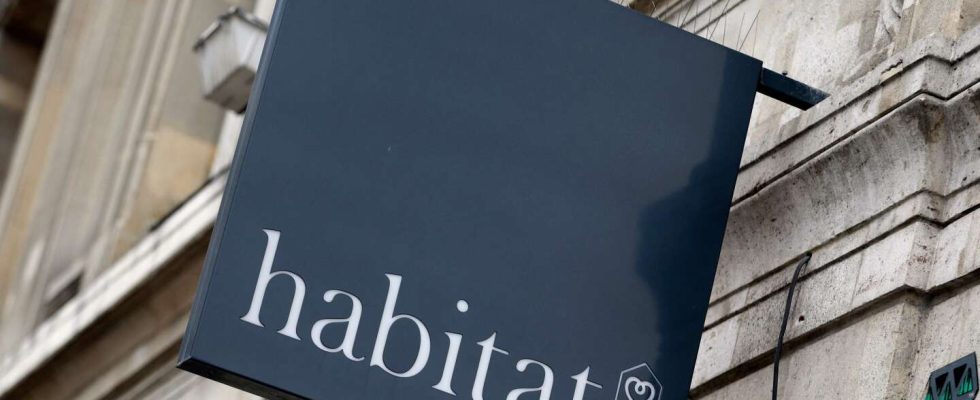The Bobigny court declared the judicial liquidation of the Habitat furniture brand “ without maintaining the activity of the company »confirmed Agence France-Presse (AFP), Thursday December 28, after information from Release.
Everything will have happened very quickly: less than ten days after the placement in receivership of this company specializing in home furnishings and equipment, which employs 383 people, the judicial administrators announced on December 15 in the CSE (social committee and economic) that they were going to request its liquidation, given the particularly deteriorated situation of the accounts. They believed that there was no “no possibility of developing a recovery plan”.
The court recalls that it “it appeared from the judicial administrator’s report that there is no possibility of developing a recovery plan” and that the situation was “irreparably compromised” for Habitat, in particular “due to lack of cash flow and inability to use the brand”. “The company no longer has any turnover, the stores are closed” And “the outstanding amount of undelivered customers who have paid a deposit is 9 million euros”it is specified in the judgment.
In a letter addressed to Agence France-Presse (AFP) on Wednesday evening, Thierry Le Guénic, the buyer of Habitat in 2020, admits not having “succeeded in meeting this challenge, just like the previous shareholders”. Saying he avoided “any social plan” and invested more than 12 million euros in digital technology and the opening of points of sale, Mr. Le Guénic concedes that his projects and ambitions “could not be achieved in a very unfavorable economic context (…) and in the face of obvious internal resistance”. Today, “another phase is opening, and we are now committed to helping find any reclassification solution for our employees”adds the businessman.
The brand, which has twenty-five stores in France, was founded in 1964 by the British designer Terence Conran (died in 2020), with the aim of offering, at an affordable price, furniture and decorative objects to both sober, refined and modern. On November 30, the group’s management explained that its request for placement in recovery had “aimed at stabilizing the financial situation” of the brand, which “has never been profitable in France”And “to ensure its long-term viability”.
“Nearly 9 million euros in advances”
She then assured “prepare a recovery plan through continuation” and claimed that his “main objective was to ensure payment of all suppliers and delivery of orders to customers”. But once the court administrators delved into the accounts, they quickly found that “the conditions were not met for continuation of the activity” and that there was “more obstacles than opportunities”a source close to the matter explained to AFP.
This source notably reported that “nearly 9 million euros in advances, according to initial estimates”, had been paid by customers for the purchase of furniture and other products. Customers who have little chance of recovering their orders or their money in the event of liquidation.
Habitat France generated a turnover of 65 million euros in 2022. The parent company, Habitat Design International, employs 68 people and had a turnover of 51.8 million euros in 2022. His difficulties are not recent. The brand was already in a net loss when it was put up for sale in 2019 by its owner at the time, the distributor Cafom. Habitat had previously belonged to the American investment fund Hilco and the Swedish Kamprad family (also owners of Ikea).
In 2020, the brand was bought by entrepreneur-investor Thierry Le Guénic. The same year, the businessman bought the clothing brand Burton of London, which was placed in receivership last summer and which did not find a buyer.
Le Monde Buying Guides
Reusable water bottles
The best water bottles to replace disposable bottles
Read
Mr. Le Guénic also took over the ready-to-wear brand Paule Ka and the Maison Lejaby lingerie brand. He was also part of a trio of investors, including Stéphane Collaert, who bought Chevignon from Vivarte in 2019.

